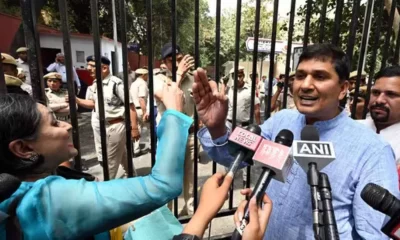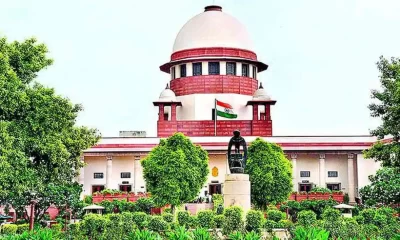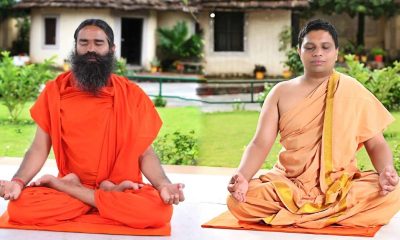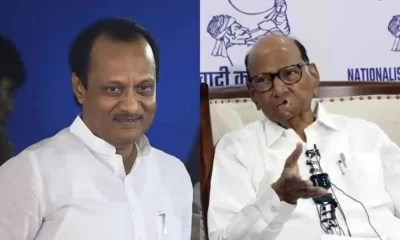India News
498A: Supreme Court does away with family welfare committees, restores role of cops
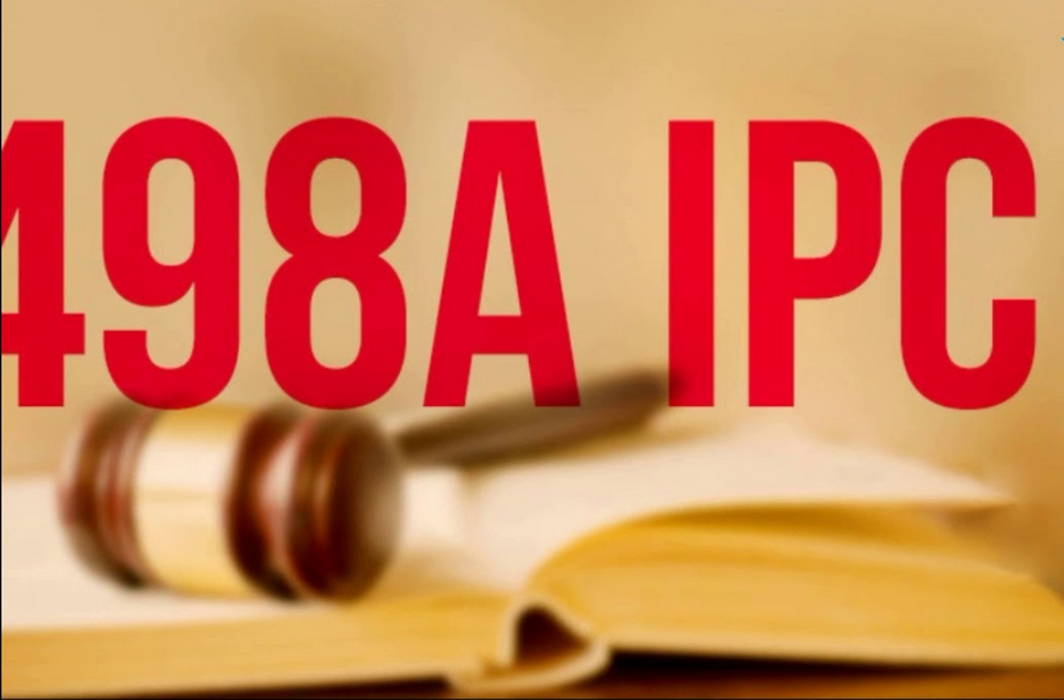
The Supreme Court on Friday, September 14, did away with the requirement of a family welfare committee to examine veracity of complaints under Section 498A of IPC while advocating balancing of interests of both the sides in dowry harassment cases.
The judgment was rendered by Chief Justice of India Dipak Misra and Justices AM Khanwilkar and DY Chandrachud.
Modifying its judgment in Rajesh Sharma v. Union of India, which had laid down safeguards for the prevention of misuse of Section 498A of the Indian Penal Code, the Court scrapped the all-important direction contained in para 19(1) of the 2017 judgment which provided for constitution of Family Welfare Committees in every district to look into complaints under Section 498A and to submit a report on the same after interacting with the parties.
The two-judge Bench that passed the judgment in July 2017 had also directed that no arrest could be made till such committee submitted its report. This direction has now been done away with.
The Court restored the power of the police to decide whether or not to make arrest under Section 498A after it modified an earlier order of the apex court.
The three-judge bench headed by the CJI held that there is no need for a family welfare committee to examine complaints and that police officers, based on facts of the case and governed by the legal provisions, should decide on their own.
It also said that anticipatory bail provision shall remain intact for the husband and his family members.
The Court also favoured the view taken by a two-judge bench that bail plea should be expedited in case of arrests under Section 498A.
It however noted that a Court cannot frame guidelines for the police regarding registration of FIRs on subjecting a married woman to cruelty for dowry, as the process has to be governed by statutory provisions.
“There are no gaps in the law to be filled up by the courts,” said the SC bench.
The top court left it to Parliament to make suitable rules to check abuse of the law. The court said there are in-built remedies in Criminal Procedure to check the misuse of law like Section 41A and anticipatory bail among others.
In October last year, the Supreme Court had indicated that it would revisit its earlier verdict that put an end to automatic arrests under Section 498A of the IPC often invoked in dowry-related cases.
The Supreme Court bench had said it was “not in agreement” with the decision and “prima facie, we perceive that the guidelines may be in the legislative sphere”. “At this stage, we are obligated to state that we are not in agreement with the decision rendered in Rajesh Sharma vs State of UP, because we are disposed to think that it really curtails the rights of the women who are harassed under Section 498A (subjecting a married woman to cruelty) of the Indian Penal Code,” the bench had said.
The court’s earlier verdict, issued on July 27, 2017, had laid down a set of guidelines that included the setting up of family welfare committees to vet complaints of harassment. The court was hearing a PIL filed by NGO Nyayadhar which sought sharpness in Section 498A, claiming that the otherwise “helpful instrument” in the hands of victim women had become “valueless”. It had also sought a direction to include two women members in the three-member family welfare committee as suggested in earlier court order.
On Friday, the three-judge bench headed by CJI Dipak Misra held that such panels had no place under the established criminal procedural law. They were beyond the Code of Criminal Procedure Code.
With this, the Bench restored to the police their power to immediately register an FIR and act on a dowry harassment complaint filed by a married woman.
Chief Justice Misra observed that the Bench of Justices AK Goel (now retired) and UU Lalit, which passed the last year order, merely wanted to craft a fair and reasonable procedure for complaints under Section 498-A. Nevertheless, Justice Goel’s Bench could not have interpreted Section 498-A beyond the scope of the established law, CJI Misra, who authored the 35-page Friday judgment, observed.
Chief Justice Misra reasoned that one of the major factors that influenced the last year order was statistics published by the National Crime Records Bureau, which showed that 1,97,762 husbands and relatives were arrested in 2012 alone for dowry harassment. Justice Goel had observed how an arrest “brings humiliation, curtails freedom and casts scars forever”.
But Chief Justice Misra rationalised that the blame does not lie with Section 498-A, which was introduced in 1983 by Parliament to protect hapless married women against dowry menace. The evil lay in the misuse of arrest powers by the police “who behave like emperors considering the notion that they can do what they please”.
Section 498-A IPC is cognisable and non-bailable offence. A guilty person faces up to three years in prison.
Chief Justice Dipak Misra agreed with the last year order to have a designated police officer to probe dowry complaints. It had ordered the Director General of Police of every State to provide such officers rigorous training.
The Chief Justice however differed with Justice Goel’s direction to empower district judges to close dowry harassment cases if the parties reached out-of-court settlement. Instead, the parties would now have to approach the High Court concerned for quashing of the complaint filed by the married woman.
The Friday judgment concurred with the last year order that recovery of dowry items by itself cannot be a ground for denial of bail to the accused. The judgment also saw eye-to-eye with the direction of Justice Goel that impounding of passport of an accused person or issuance of Red Notice should not be done on a routine basis.
The three-judge Bench also held that accused persons should apply for exemption from personal appearance in dowry harassment hearings.
India News
Gujarat Jain couple donate Rs 200 crore wealth, renounce world
The Bhandari couple was accompanied by 35 individuals in February and led a 4 km procession during which they donated all their belongings, from mobile phones to air conditioners.

A Gujarat-based businessman and his wife have donated their lifetime earnings of Rs 200 crore and have taken the decision to renounce all materialistic desires to become Jain monks. In February this year, Bhavesh Bhandari and his wife donated all their wealth during a ceremony. The Bhandari family, which hails from Himmatnagar, has been in the construction business. The family decided to follow in the footsteps of their 16-year-old son and 19-year-old daughter, who adopted monkhood in 2022.
Bhavesh Bhandari, who belongs to a Jain family, had been a part of construction business in Ahmedabad and Sabarkantha and was accustomed to a life of luxury and prosperity from a young age. The Bhandari couple was accompanied by 35 individuals in February and led a 4 km procession during which they donated all their belongings, from mobile phones to air conditioners. A short video clip from the event shows the couple wearing regal attire on top of a chariot and making donations. Adorned in rich attire and jewellery, they stood atop a truck adorned to resemble a chariot, tossing garments and banknotes to the people standing below,
After the couple made their pledge on April 22 to adopt monkhood, the couple is going to break all familial relations and renounce any material possessions and desires. Afterwards, they will begin a barefoot journey across India and will sustain themselves solely on alms.
According to reports the couple will be allowed to own two white garments, an alms bowl, and a rajoharan, a white broom used by Jain monks to clear insects from an area before sitting — a symbol of the non-violent path which they follow. In a similar incident in January, the 8-year-old daughter of a Gujarati diamond merchant renounced material comforts and worldly desires to embrace monkhood. Devanshi Sanghv had participated in a grand procession with camels, elephants, horses and great fanfare before embracing a life of monkhood.
2024 Lok Sabha Elections
Lok Sabha elections 2024: BJP releases 12th list of candidates, Udayanraje Bhonsle to contest from Satara
The BJP on Tuesday released its 12th list of seven candidates for the upcoming Lok Sabha elections
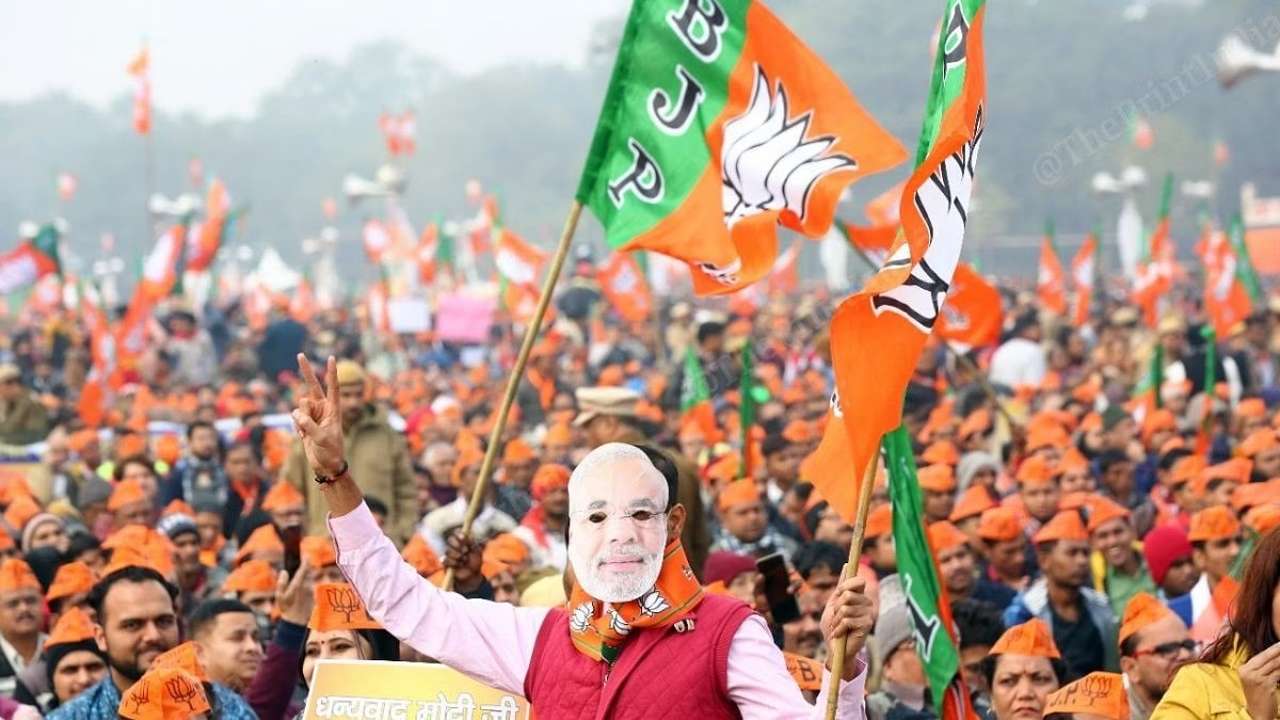
The 12th list of seven candidates for the Lok Sabha elections, which are scheduled to start on Friday, was announced by the BJP on Tuesday. Among the seven candidates is Chhatrapati Udayanraje Bhosale, the 13th descendant of Chhatrapati Shivaji Maharaj, who will contest from Satara, Maharashtra, and Abhijit Das Bobby, who represents Diamond Harbour in West Bengal.
The current MP for the Trinamool Congress, Abhishek Banerjee, has been paired against Abhijit Das Bobby, who contested unsuccessfully for the Diamond Harbour seat in the general elections of 2009 and 2014.
Abhishek Banerjee won in the 2014 Lok Sabha elections with 40.31 percent of the vote, while Abhijit Das secured 15.92 percent of the vote to finish third. Dr. Abul Hasnat of CPI(M), who received 34.66% of the vote, came in second.
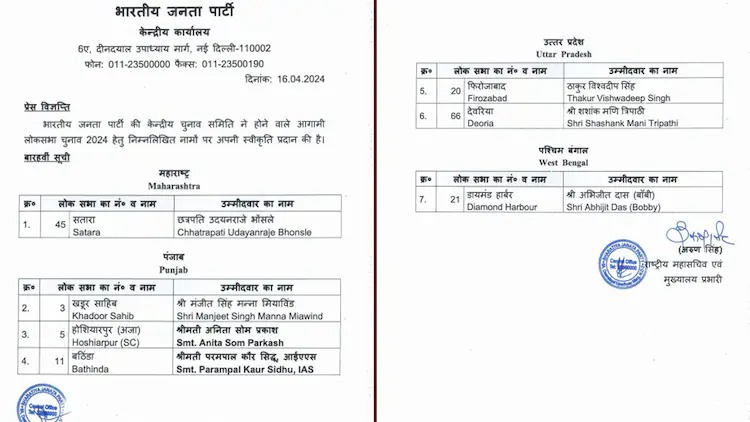
With 7,91,127 votes, the leader of the Trinamool Congress party was able to hold onto the seat in 2019. Nilanjan Roy of the BJP received 4,70,533 votes, while Fuad Halim of the CPI(M) secured third place with 93,941 votes.
The 13th descendant of Chhatrapati Shivaji Maharaj, Chhatrapati Udayanraje Bhosale, is another prominent figure on the list. He is contesting for the Satara Lok Sabha constituency in Maharashtra as a member of the BJP.
In the 2019 by-election, Bhosale—a former leader of the NCP who joined the BJP in 2022—lost the seat. There has been a back-and-forth in the seat on the Lok Sabha election candidate between the BJP and NCP.
Shashikant Shinde has received his ticket from the NCP (SP).
Shashank Mani Tripathi from Deoria and Thakur Vishwadeep Singh from Firozabad are the final candidates on the BJP’s 12th list.
In Uttar Pradesh, there are two seats.
Meanwhile, Union Minister Som Prakash’s wife Anita Som Prakash, who is a resident of Punjab, will contest for the Hoshiarpur seat in lieu of her husband.
Manjeet Singh Manna Miawind from Khadoor Sahib and Parampal Kaur Sidhu from Bathinda are the other two candidates, both of whom are from Punjab.
2024 Lok Sabha Elections
Prime Minister Narendra Modi says RJD is responsible for destroying Bihar, slams Lalu’s party over various corruption cases
The prime minister made a scathing attack at the opposition and said Ghamandia Gathbandhan has no vision or trust. He said when INDIA bloc alliance goes out asking for votes, then they do so on the basis of the work done by Bihar Chief Minister Nitish Kumar.
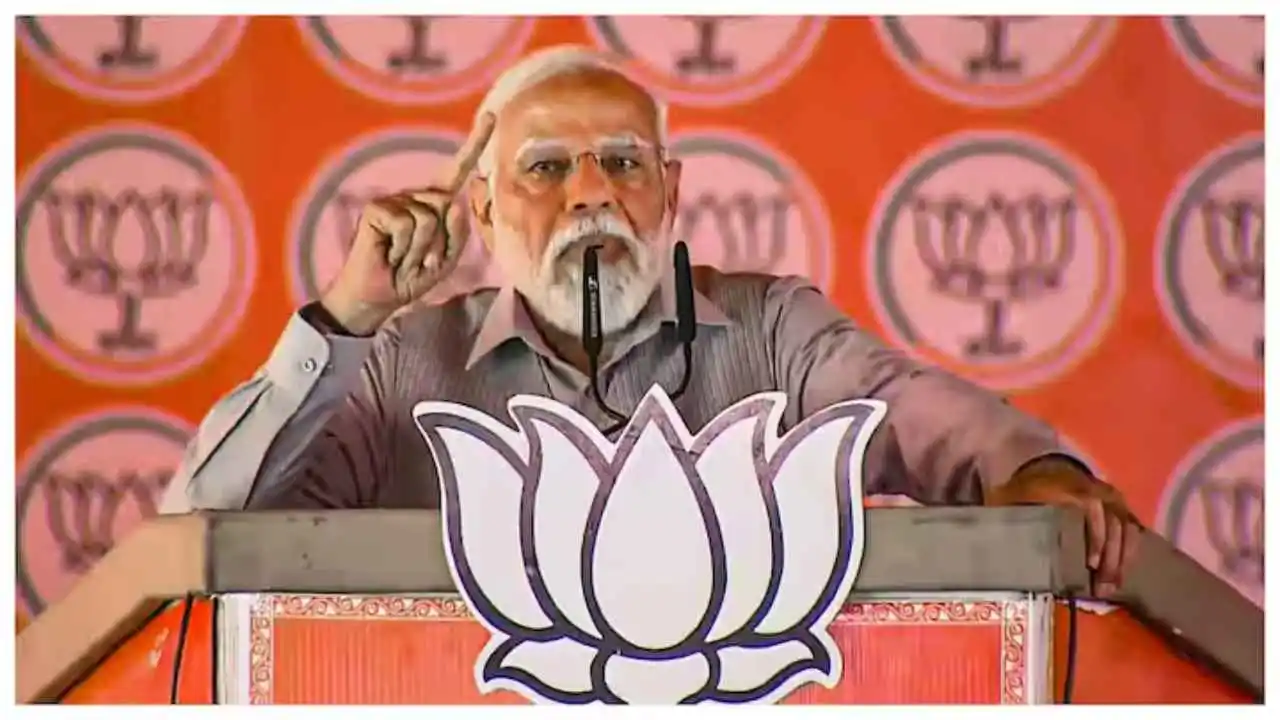
Prime Minister Narendra Modi on Tuesday said that India and Bihar are moving forward to return to their ancient glory and added the upcoming Lok Sabha elections is an election to take a resolve for developed India and developed Bihar. PM Modi was addressing an election rally in Bihar’s Gaya, where he said that the public support that has gathered on the land of Gaya clearly shows enthusiasm of the people once again for the Modi government.
The prime minister spoke on BJP’s manifesto for the upcoming Lok Sabha elections and said that it is for the first time that a Sankalp Patra of any party is being called a guarantee card as in the last 10 years, people have seen Modi’s guarantee for fulfillment of a guarantee.
PM Modi said for the next five years, Modi’s guarantee card has been updated. He promised 3 crore houses will be made for the poor, the poor will get free ration for the next 5 years and those above 70 years of age will receive free treatment upto Rs 5 lakhs He said the PM-Kisan Samman Nidhi yojana will be continued and all of these are Modi’s guarantees.
The prime minister made a scathing attack at the opposition and said Ghamandia Gathbandhan has no vision or trust. He said when INDIA bloc alliance goes out asking for votes, then they do so on the basis of the work done by Bihar Chief Minister Nitish Kumar. PM Modi said the people of Bihar know why they try and take credit for the work done by Nitish and the central government.
The prime minister said RJD is responsible for destroying Bihar and slammed Lalu’s party over various corruption cases including land for jobs scam, fodder scam. Speaking about BJP’s manifesto PM Modi said, there is a roadmap for every section and sector of the society.
-
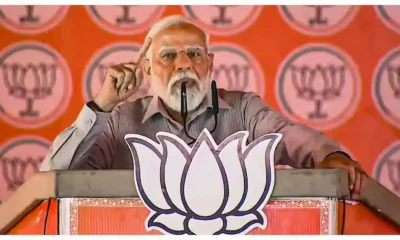
 2024 Lok Sabha Elections10 hours ago
2024 Lok Sabha Elections10 hours agoPrime Minister Narendra Modi says RJD is responsible for destroying Bihar, slams Lalu’s party over various corruption cases
-

 Cricket news11 hours ago
Cricket news11 hours agoIPL 2024: Travis Head smashes brilliant century, Pat Cummins takes 3 wickets as Sunrisers Hyderabad defeat Royal Challengers Bengaluru by 25 runs
-

 India News11 hours ago
India News11 hours ago2 shooters arrested from Gujarat for firing outside Salman Khan’s house
-
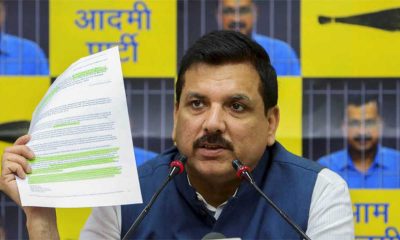
 India News10 hours ago
India News10 hours agoMy name is Arvind Kejriwal and I am not terrorist: Sanjay Singh reads Delhi CM’s message from Tihar Jail
-

 2024 Lok Sabha Elections9 hours ago
2024 Lok Sabha Elections9 hours agoLok Sabha elections 2024: BJP releases 12th list of candidates, Udayanraje Bhonsle to contest from Satara
-

 Food7 hours ago
Food7 hours agoBengaluru outlet selling gold and silver panipuri goes viral
-

 Entertainment8 hours ago
Entertainment8 hours agoAmul pays tribute to Diljit Dosanjh, Parineeti Chopra starrer Amar Singh Chamkila
-

 India News9 hours ago
India News9 hours agoGujarat Jain couple donate Rs 200 crore wealth, renounce world



